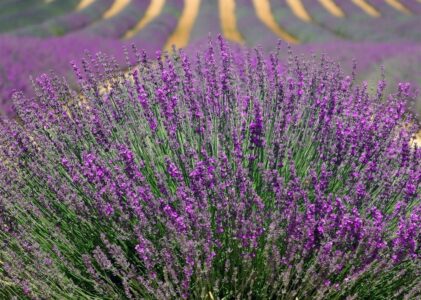Herbs have been used for centuries for their medicinal properties and have been found to have numerous health benefits. There are various types of herbs, including culinary herbs such as basil, oregano, and thyme, and medicinal herbs such as echinacea, turmeric, and black elderberry. These herbs can be used in a variety of ways, including as supplements, teas, and spices in cooking. Incorporating herbs into one’s daily routine can provide numerous health benefits, including supporting the immune system and reducing inflammation.
The use of herbs in traditional medicine dates back thousands of years and has been a vital part of many cultures around the world. Many of these traditional uses of herbs have been supported by scientific research, which has found that herbs can be effective in treating a variety of health conditions. For example, turmeric has been found to have anti-inflammatory properties, while black elderberry has been found to boost the immune system. Oregano has been found to have antimicrobial properties, making it helpful in fighting infections. The use of herbs in traditional medicine continues to be an important part of many cultures, and their benefits are increasingly being recognized by modern science.
Scientific research has supported the use of herbs for health promotion and therapy for chronic conditions. In addition to their traditional uses, herbs have been found to have a variety of health benefits, including reducing inflammation, lowering blood pressure, and supporting the immune system. However, it is important to note that the quality control and safety of herbal medicines can be a challenge, particularly in traditional medical practices. Therefore, it is important to consult with a healthcare professional before incorporating herbs into one’s health regimen. Nevertheless, the power of herbs to promote health and well-being cannot be ignored, and incorporating them into one’s daily routine can be a valuable tool for optimal health.
Popular Herbs and Their Health Benefits
Turmeric is a popular herb that has been used in traditional medicine for centuries. It is known for its anti-inflammatory and antioxidant properties, making it a powerful tool for promoting optimal health. Modern in vitro studies have shown that turmeric is a potent agent against mutagenesis, inflammation, and cancer. Additionally, turmeric has been found to have antibacterial, antiviral, and antiparasitic benefits. Incorporating turmeric into one’s diet can be as simple as adding it to meals or drinking turmeric juice, which has been shown to soothe inflammation and aid in cleansing the body.
Ginger is another popular herb that has been used for medicinal purposes for thousands of years. It is known for its anti-inflammatory properties and its ability to relieve nausea. Ginger has been found to inhibit prostaglandin and leukotriene biosynthesis, which may contribute to its anti-inflammatory effects. Additionally, ginger contains a high level of antioxidants, making it a powerful tool for promoting optimal health. Health care professionals often recommend ginger to help prevent or treat nausea and vomiting associated with motion sickness, pregnancy, and cancer chemotherapy.
Echinacea is an herb commonly used to support the immune system. It has been found to have a wealth of health benefits beyond its immune-boosting properties. Echinacea is often recommended by herbalists to help the body fight infections and boost the immune system. It is commonly found in cold remedies and immune-building preparations. Other herbs, such as andrographis, elderberry, and fermentation metabolites, have also been found to be effective in supporting overall health and boosting the immune system. Incorporating these herbs into one’s diet can be a powerful tool for promoting optimal health and preventing illness.
Incorporating Herbs into Daily Life
One way to incorporate herbs into daily life is by cooking with them. Herbs not only add flavor to dishes but can also provide additional health benefits. For example, parsley is a good source of vitamin C and may help improve digestion. Turmeric, peppermint, ginger, and many more herbs and spices have been shown to have potential health benefits, such as reducing inflammation and improving brain function. By adding herbs to meals, individuals can easily incorporate these health benefits into their daily routine.
Herbal supplements are another way to harness the power of herbs for optimal health. There are various herbal supplements available that can be used for different purposes, such as improving sleep, reducing anxiety, and boosting the immune system. However, it is important to exercise caution when using herbal supplements, as they can interact with other medications and may have side effects. Consulting with a healthcare professional before taking herbal supplements is recommended.
Growing and harvesting herbs at home is a great way to ensure their freshness and maximize their health benefits. Starting an herb garden is a simple and sustainable way to incorporate herbs into daily life. Additionally, using freshly harvested herbs in cooking or making herbal teas can provide a more potent dose of their health benefits. However, it is important to properly research and care for each type of herb to ensure optimal growth and health benefits. By growing and harvesting herbs at home, individuals can have a readily available source of fresh herbs for cooking and medicinal purposes.

